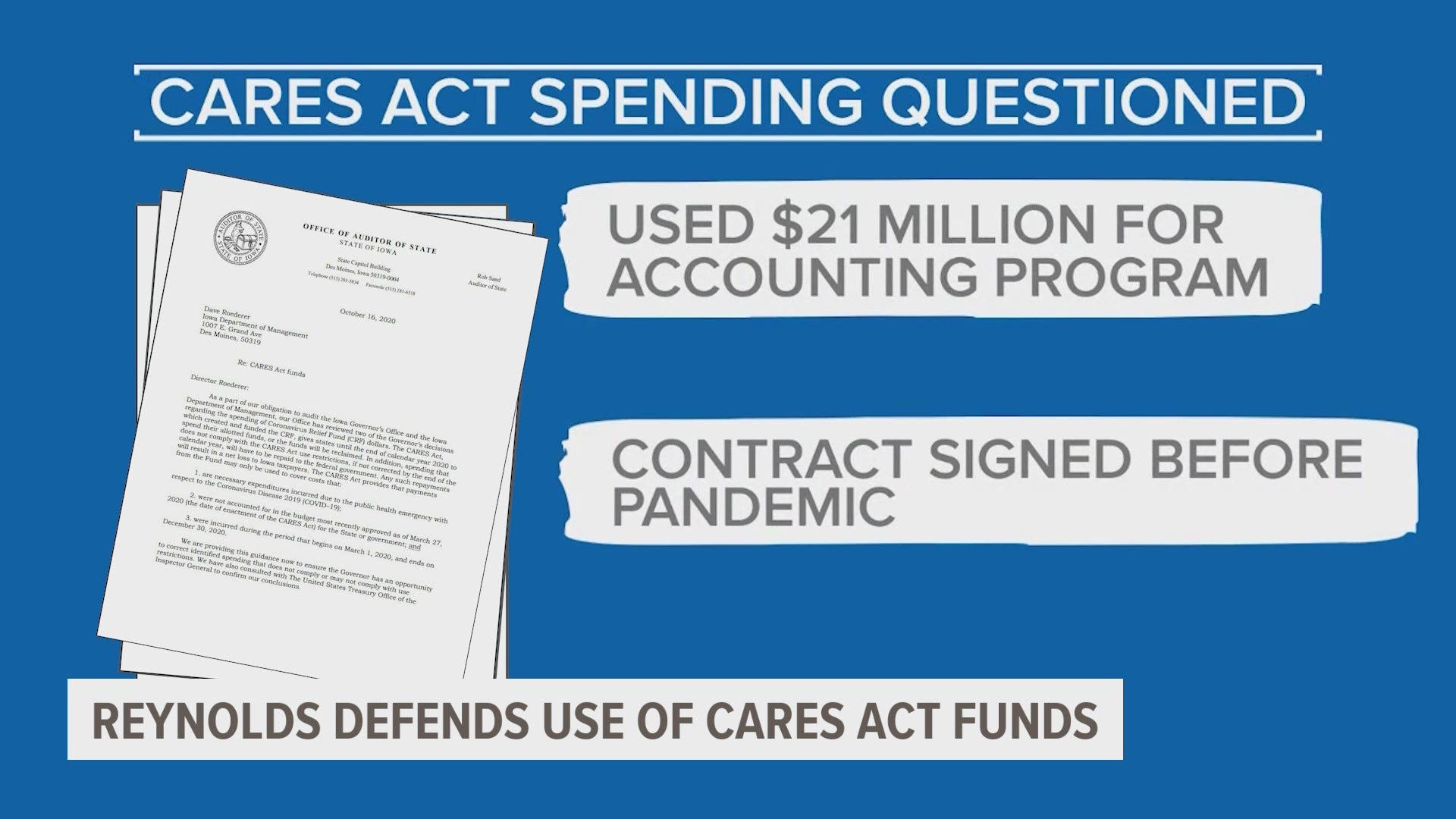DES MOINES, Iowa — A letter sent from Gov. Kim Reynolds' senior legal counsel to the U.S. Treasury Department argues that she used her best judgement when allocating $21 million in CARES Act funds to pay for a replacement to the government's current human resources and accounting systems.
On Oct. 19, Iowa State Auditor Rob Sand released a report alleging Reynolds' administration improperly used the $21 million of federal funding designated for coronavirus relief.
The Treasury Department's Inspector General, Richard K. Delmar, agreed that the decision is "not allowable."
Samuel P. Langholz, senior legal counsel and special advisor to Reynolds, defended the governor's actions in a response letter to Delmar on Monday.
In the letter, Langholz urges the Office of Inspector General (OIG) to reconsider.
"The cumbersome processes to reprogram the 1950s-era [Common Business Oriented Language]-based human resources system to accommodate changing leave types other processes arising from the emergency inhibited an agile response," Langholz wrote.
In October 2019, the state signed a contract with Workday, a human resources and accounting computer system, to replace the state's legacy mainframe system.
In the contract, the state agrees to launch three different systems: Human Capital Management, Financial and Adaptive. The plan was to launch each system over the next few years, according to the letter.
Langholz wrote that the upgrades became "even more acute" once the pandemic hit and government workers began working from home and the State Emergency Operations Center (SEOC).
"And the ever-changing fiscal and operational situation demonstrated the need for a better system of planning, modeling, budgeting, and forecasting tool for our state agencies and statewide leadership."
That's when Reynolds made the decision to move forward with allocating funds for this project, according to Langholz.
The total expected cost of the project over five years is around $57 million.
The U.S. Treasury Department has said the use of the money is unacceptable since the "upgrade was already planned and budgeted for prior to the CARES Act."
Use of the funds is satisfied “if either (a) the cost cannot lawfully be funded using a line item, allotment, or allocation within that budget or (b) the cost is a substantially different use from any expected use of funds in such a line item, allotment, or allocation.”
Langholz argues that guidelines from the Treasury Department gave Reynolds the power to allocate those funds.
There are three key reasons why these expenditures were necessary, according to Langholz.
He writes that both Human Capital Management and Adaptive systems are cloud-based, mobile-enabled solutions that will allow state government to "productively continue functioning when employees are operating remotely to reduce the risk of transmission of the coronavirus."
The second is that the Human Capital Management system will better permit the state to "swiftly adjust to changing requirements caused by emergency" without using the 1950s-era reprogramming.
Lastly, the Adaptive system provides a new tool for state agencies and leaders "to plan, model, budget and forecast to properly respond to the public health emergency and its second-order economic effects."
READ: The entire letter from Langholz to the OIG

